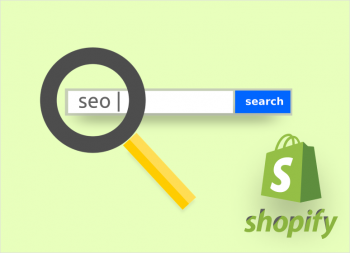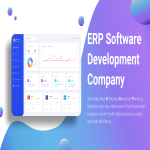A Comprehensive Guide to Ecommerce SEO Success
There is no doubt that ranking higher than your competitors on Google is a must. However, you need to know some basic tricks and tips to make your e-commerce website top. Because if you're missing clicks, you're probably missing out on sales.
Whether you're starting a new eCommerce site or looking to improve the rankings of an existing site, we've got a comprehensive guide to help you step up in the SEO game.
How to choose to convert keywords for your campaign?
Like other SEO campaigns, eCommerce SEO should start with keyword research. You can also win the eCommerce SEO game if you kick it off with keyword research.
Your keywords also affect technical SEO. That's why it's important to find unused keywords that your customers use when searching for products.
1: How to find product and product page keywords?
The most frequently suggested keywords for eCommerce are "how to" and other such informative search terms. While these keywords take place for e-commerce, it's also important to find search terms that are tailored to product pages.
2. Wikipedia:
Wikipedia is also a great resource for finding keywords for category pages and product pages. Like the category pages of an e-commerce site, Wikipedia has topics organized by keywords and categories.
3. SEMRush:
If you're not worried about budget constraints, you can get high-converting keyword suggestions through SEMRush. SEMRush doesn't display keywords, instead, it displays the keywords your competitors are using.
4. Google Keyword Planner:
Last but not least, we have Google Keyword Planner to help you find a close variation of your search term.
To find unique keyword ideas using Google Keyword Planner, you need to be good at digging deep.
Apart from that, you can also Google Keyword Planner to find out the search volume, competition, offer and other related things.
How to choose keywords for product and category pages?
Now that you have a list of keywords, it is difficult to choose the useful ones and leave the others aside.
Here are some tips to help you choose the right keyword for your campaign:
Search Volume: This is the most important metric to consider when choosing a keyword. If your keyword doesn't have good search volume, it doesn't matter how well it converts or ranks on Google. It is important to note here that search volume varies by region. In some industries, 100 search volumes are enough, while in others, even 10,000 searches per month won't matter. Some spend time analyzing the search volume of keywords in your list, you will understand what is "high search volume" and "low search volume". in your field.
Relevance: It is not possible to use a keyword with a high search volume if it is not relevant to your products. This is because the keywords would not be suitable for what your website is selling. If your chosen keyword is even a little complicated compared to what you're selling, you're going to have a tough time converting anyone. So before you move forward, make sure the keyword you've chosen fits like a glove with what you're selling. Let's say dietary supplements, for example, then it doesn't make sense to use nutritional supplements as a keyword even if it has a high search volume than one of your keywords. Better choose keywords like dietary supplements online, buy dietary supplements and more.
Competition: It's finally time to determine how hard it will be to crack the first page of Google. You can check the competition for your keywords using various tools such as Google Keyword Planner, UberSuggest and Keyword Everywhere.
Optimizing the Site Architecture?
How pages are organized and laid out is an important SEO factor for any website. However, it is more important for an e-commerce site, because your average e-commerce site would have many more pages than your average blog or pizza site.
To maintain an effective eCommerce website architecture, follow two golden rules:
- Keep things simple and scalable
- Your home page should not require more than 3 clicks.
In the case of e-commerce, most of the page link authority (also known as PageRank) is on the home page. If you have a deep site architecture, authority is diluted by category and product pages.
Well-optimized site architecture is one in which authority is concentrated on the site's product and category pages. This not only helps these pages to rank well on Google but also improves indexing.
Optimizing Content Marketing for E-commerce Websites?
Like other websites, content marketing is also effective for e-commerce websites. There are several e-commerce websites that achieve targeted sales by driving traffic to their website.
For example, if you sell clothes and accessories, you can share blogs related to the latest fashion. And if you sell cookware, you can share blogs about simple and healthy recipes.
Apart from blogs, you can also focus on sharing engaging content on social media channels like Facebook, Pinterest, Instagram and more.
So that was all about how to do SEO effectively for your eCommerce website. I hope this article helps you.









